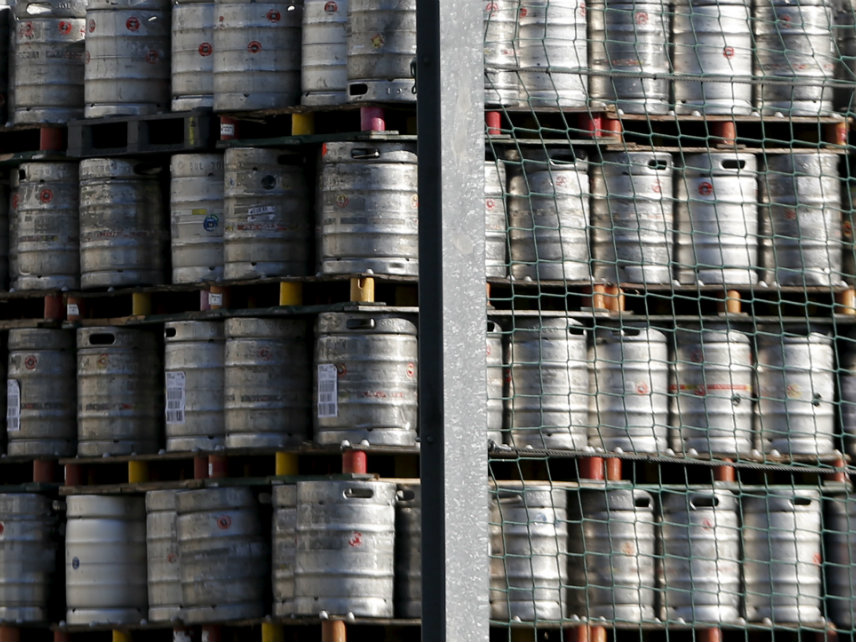Kick the Keg: Trump's Tariffs Might Kill Last American Keg Manufacturer
"Tariffs will inadvertently drive the price of American steel higher," says American Keg CEO Paul Czachor.

A Pennsylvania-based company that claims to be the last American manufacturer of steel beer kegs might be driven out of business by the tariffs that President Donald Trump imposed last week.
On Thursday, Trump signed an executive order imposing 25 percent tariffs on steel imported into the United States (plus a 10 percent tariff on imported aluminum). The tariff will help steel makers at the expense of steel-consuming businesses like American Keg of Pottstown, Pennsylvania.
"Tariffs will inadvertently drive the price of American steel higher," CEO Paul Czachor tells Philly.com's Sam Wood. "Within a year, we might have to raise our prices so our kegs cost 30 percent more than an import. That puts the whole business in jeopardy."
American Keg is a small, blue-collar business that the Trump administration might otherwise celebrate. Instead, its 20 employees might find themselves out of a job. They won't be alone. For every steel-producing job in the country there are about 46 steel-consuming jobs, and each of the latter will get a little shakier once Trump's tariffs take effect. When George W. Bush imposed a smaller tariff on imported steel in 2002, an estimated 200,000 jobs in downstream industries were lost.
"We don't make things anymore," is a common Trump refrain. His tariffs will make it significantly harder for Americans to keep making steel kegs, among other things.
For American Keg, the tariff is a double whammy. Not only will it increase the cost of the steel needed to make the company's products, but it will increase the cost of the company's products relative to foreign-made competitors. That's because the tariff applies only to raw or unfinished steel (sheets or rolls, for example), and not to steel-made products imported into America.
As Czachor tells Philly.com, "Downstream imported products, made outside of the U.S., that use a lot of steel, will still be priced cheaply." While his business will face a 30 percent increase in costs, foreign keg manufacturers will be able to make and sell their products to American breweries for pretty much the same price as today.
As he signed the tariff declaration, Trump indicated that he was willing to exempt Canada and Mexico from the new import tax. That's good news, since Canada is the source of the largest share of America's steel imports (5.6 million metric tons of the stuff in 2017), but the tariff will whack other major suppliers of steel to U.S. industries, including Japan (1.7 million metric tons in 2017), Brazil (4.6 million metric tons), and South Korea (3.4 million metric tons). Despite all the talk about Chinese steel undercutting American manufacturers, America imported just 740,000 metric tons of steel from China last year, far less than it imported from places like Turkey or Russia.
Trump's tariffs could grow the steel, iron, and aluminum industries by about 33,400 jobs, according to a policy brief released this week by the Trade Partnership, a Washington-based pro-trade think tank. On the flipside, the tariffs are projected to wipe out more than 179,000 other jobs. That's about 146,000 net job losses—five jobs lost for every job gained.

Show Comments (101)